20 Jan 2022 - {{hitsCtrl.values.hits}}
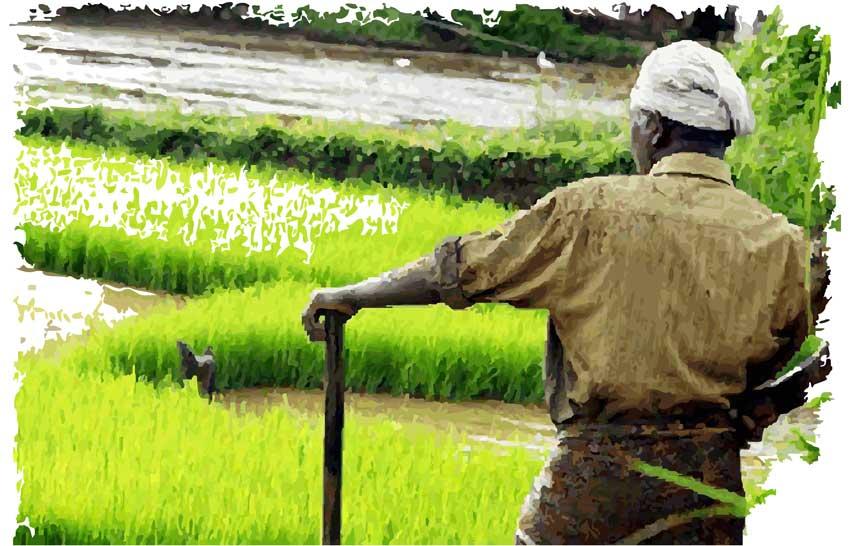
According to food experts a rice shortage seems unavoidable
Reportedly, 300,000 Metric Tons of Nadu and Samba are to be imported to address the rice shortage
The price of one kilo of rice would be 200 rupees a kilo by March
1500 containers of food items such as sugar, milk powder, wheat, dhal and other items are currently stuck at port
Corn cultivation has been heavily affected by the fertilizer shortage
Paddy was cultivated in 1,208,454 hectares in 2020 with a harvest of 5,120,934 MT. The surplus, if any was consumed in 2021
It is uncertain whether there will be rice production for the first quarter of 2022
Without chemical fertilizer rice plants will not grow and a considerable amount of harvest cannot be expected
2000 bakeries out of 7000 have stopped operations due to the shortage of wheat
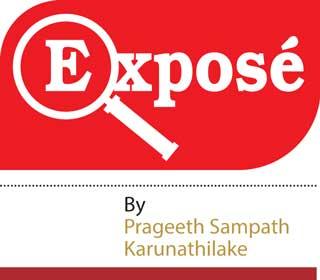 According to agriculture experts, Sri Lanka is facing a food crisis and the food related shortage will be felt more in March. Farmers cultivated less during the Maha season due to the current fertilizer issue in the country. Cultivation was not successful. This was because the farmers who were engaged in cultivation did not receive fertilizer.
According to agriculture experts, Sri Lanka is facing a food crisis and the food related shortage will be felt more in March. Farmers cultivated less during the Maha season due to the current fertilizer issue in the country. Cultivation was not successful. This was because the farmers who were engaged in cultivation did not receive fertilizer.
Therefore there is a shortage of paddy, other crops and vegetables. Former Director of the Department of Agriculture K. B. Goonaratne said that the harvest is expected to reduce by 50% and a shortage of rice, other crops, vegetables and fruits would be unavoidable. “This situation arose as there were no plans for organic cultivation. Organic cultivation could have been successful with a step-by-step plan and the lack of planning ruined the whole agricultural industry.” he added.
Reportedly, 300,000 Metric Tons of Nadu and Samba are to be imported to address the rice shortage. 200,000 MT of Nadu and 100,000 MT of G. R. 11 short grain rice- which is a substitute for Samba- will be imported at the price of 436 USD per one MT of Nadu and 465 USD per one MT of Samba substitute. These stocks are to be imported from Pattabhi Agro Foods Private Ltd. Cabinet approval was given to import rice under these prices and the stocks will be imported after issuing letters of credit. It will take six more months to import the stocks. 20,000 MT of white raw rice to which the Cabinet gave approval in November last year are to be imported as well. “Even though approval was given to import one MT at 460 US$, Myanmar issues rice at 445 US$ a MT. Goonaratne said that the stock would reach Sri Lanka by the end of April. That stock is also not a solution to the rice shortage expected in March. The price of one kilo of rice would be 200 rupees a kilo by March. People will starve. The Government has no solutions to address this issue before a shortage occurs,” Goonaratne said.
1500 containers of food items such as sugar, milk powder, wheat, dhal and other items are currently stuck at port. According to Goonaratne many such items have expired. Some food items have gone stale. “Even if containers are released there would still be a shortage in the market due to the expiry and spoiling of food items. There will be a huge food shortage in the market. 1000 million USD are to be paid for suppliers of goods stuck at port. This issue had arisen as banks have not issued dollars,” he said.
Goonaratne’s statement is further confirmed by what the Media Spokesperson of Essential Food Commodities Importers and Traders Association Nihal Seneviratne told the media. According to him the Government had not fulfilled its promise to grant 25 million USD to release the containers of food items stranded at port by January 10. “Containers of essential items are stuck at the port. There is a dollar scarcity and we are awaiting dollars to release the containers.” he said.
The price of rice will go up to 180-200 rupees a kilo by March and up to 300 rupees in April, Goonaratne said. ”The price of capsicum will increase to 1500-1800 rupees, green chilies to 1500 rupees, beans to 800-1000 rupees, chicken to 1000-1200 rupees a kilo,” he added.
“There will be no shortage of fish such as seer and trevallies. But because of the increase in fuel price, the price of fish will increase to 2200 rupees a kilo. The Government has proposed to import 4200 MT of corn. But that may not prevent the poultry industry from facing a drop in production,” Goonaratne added. The price of chicken will continue to increase. Corn was cultivated in 78249 hectares in 2020 and the harvest was 313,520 MT. During the 2021 Maha season corn was cultivated in 97122 hectares with a harvest of 435,159 MT. However that is not sufficient for local use. Therefore the shortage will be felt more in 2022 and corn cultivation has been heavily affected by the fertilizer shortage,” he said. Goonaratne said that the poultry industry will face a huge crisis without corn for feed. The poultry industry, which had reached a satisfactory level, is at the brink of collapse, he added.
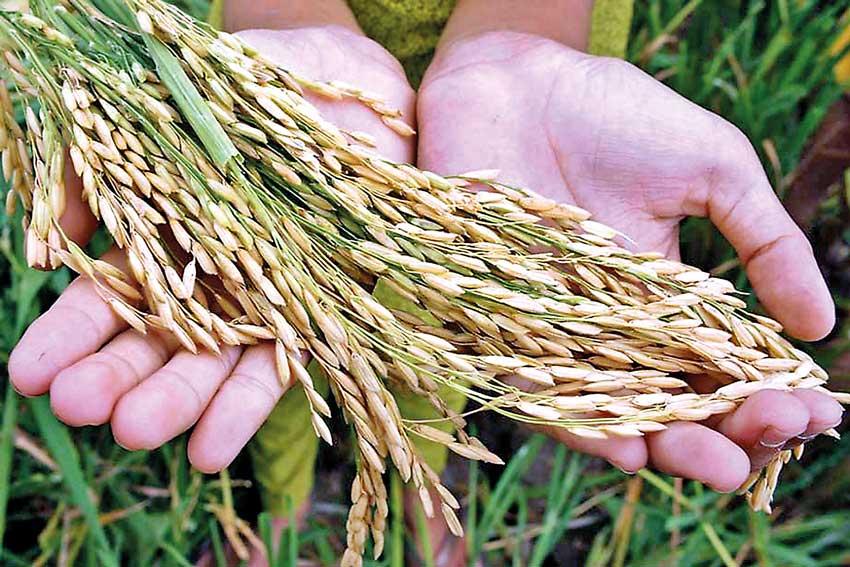
The 3,061,394 MT of harvest obtained was sufficient for local use, but rice was still imported in large stocks in 2020
Paddy was cultivated in 1,208,454 hectares in 2020 with a harvest of 5,120,934 MT. The surplus, if any was consumed in 2021. During the 2020/21 Maha season paddy was cultivated in 770,240 hectares. The 3,061,394 MT of harvest obtained was sufficient for local use, but rice was still imported in large stocks in 2020.
“15,770,228 kilograms of rice were imported in 2022 at the cost of 1,936,087,671 rupees. It is uncertain whether there will be rice production for the first quarter of 2022. Harvest of 2021/22 Maha season will be obtained in February and March 2022. Rice from Ampara and Batticaloa districts should arrive in markets by February. The rice production of those districts are 12% but because of the shortage of fertilizer 50-60% of paddy lands have been destroyed. The harvest expected is less than 50%,” Goonaratne said. Without chemical fertilizer rice plants will not grow and a considerable amount of harvest cannot be expected. This situation is common in every district where paddy is cultivated. A rice shortage is unavoidable. Rice was imported to control prices, but it will take months to arrive. According to Goonaratne people will have to starve during the coming Sinhala New Year. Even the imported rice will be not less than 140-150 rupees a kilo, he added.
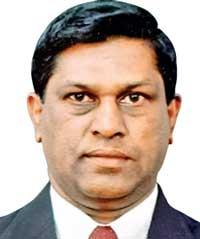
“This situation arose as there were no plans for organic cultivation. Organic cultivation could have been successful with a step-by-step plan and the lack of planning ruined the whole agricultural industry”
- K. B. Goonaratne, Former Director of the Department of Agriculture
Beans were cultivated in 7830 hectares in 2020 and the harvest was 82,973 MT. During the 2020/21 Maha season beans were cultivated in 4115 hectares and the harvest was 40184 MT. Even though beans were cultivated during the 2021 Yala season to a considerable extent, 2021/22 Maha season did not see sufficient bean production for local use. Potatoes were cultivated in 3565 hectares in 2020 with a production of 65085 MT of potatoes. Potatoes cultivated in 2124 hectares in 2021/21 Maha season produced 40008 MT and is not sufficient for local consumption at all. Therefore potatoes will have to be imported causing the price to go up, Goonaratne added.
Green chilies were cultivated in 6781 hectares in the previous Maha season with a harvest of 35752 MT. Green chilies can be cultivated easily in Sri Lanka, but because chili cultivation was impacted by fungal diseases the increase of price is unavoidable, he added.
The most recently released data of Department of Census and Statistics is for the year 2017 and accordingly the annual rice consumption per person is 89 kilos. 1,914,000 MT of rice have been consumed in 2017. The data also say that a person consumes eight kilograms of potatoes per year. 195,000 MT of corn are required for annual consumption. Chicken consumption is 199,000 MT per annum and is nine kilograms per person annually. 131,000 MT of eggs are required annually and a person consumes 6 kg per year. These data are for 2017 and when compared, the question arises whether it will be possible to fulfill the consumption requirements for 2022, underscored Goonaratne. A food crisis would begin in the first quarter of 2022 and the whole country would starve, he added.
 “There will be no food crisis at all. Rice is imported to control increasing prices. As this will cause injustice to farmers the paddy produced in the Maha season will be bought at 75 rupees a kilo. Even though this Maha season’s harvest has reduced by 40-50%, that will be sufficient for six months and there will be no rice shortage”
“There will be no food crisis at all. Rice is imported to control increasing prices. As this will cause injustice to farmers the paddy produced in the Maha season will be bought at 75 rupees a kilo. Even though this Maha season’s harvest has reduced by 40-50%, that will be sufficient for six months and there will be no rice shortage”
- Mahindananda Aluthgamage, Agricultural Minister
All Island Bakery Owners’ Association said they have been unable to maintain bakeries as finding the wheat required for daily use has been difficult. All Island Bakery Owners’ Association Chairman N. K. Jayawardena said that 2000 bakeries out of 7000 have stopped operations due to the shortage of wheat. “Wheat issued to markets daily is not sufficient for bakery production. Consumers cannot eat bread as a substitute for rice. Importing wheat has been unthinkable due to dollar scarcity and this issue has occurred,” he added.
Agricultural Minister Mahindananda Aluthgamage said recently that at the event of a food crisis, measures would be taken immediately to import items. However our efforts made to contact the Minister proved futile. But according to the announcement issued by the Ministerial Media Unit, the Agriculture Minister has said that even though the organic fertilizer project failed this season, that can be successfully launched during the Yala season and measures had been taken to import organic fertilizer as well as chemical fertilizer. “There will be no food crisis at all. Rice is imported to control increasing prices. As this will cause injustice to farmers the paddy produced in the Maha season will be bought at 75 rupees a kilo. Even though this Maha season’s harvest has reduced by 40-50%, that will be sufficient for six months and there will be no rice shortage,” he added.
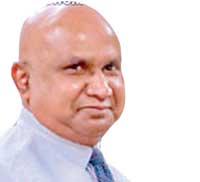 “Only a few people want the Chinese vessel containing fertilizer. They are trying to import fertilizer and are claiming that their money was wasted during the previous deal. If fertilizer does not meet the standards we will not allow them to be imported”
“Only a few people want the Chinese vessel containing fertilizer. They are trying to import fertilizer and are claiming that their money was wasted during the previous deal. If fertilizer does not meet the standards we will not allow them to be imported”
- Dr. Ajantha de Silva, Director General of Agricultural Department
Attempts made to contact Trade Minister Bandula Gunawardena were also futile. A spokesperson of the Trade Ministry said that essential items stranded at port would be released when dollars are received. “A food crisis will not be tolerated in the country. 400,000 MT of rice are to be imported and they will be distributed at fair prices through Sathosa,” he added.
The Government is attempting to import organic fertilizer for the next season and successfully carry out organic cultivation. Compensation has been paid for the fertilizer stock reported to contain harmful microbes. The fertilizer company issuing a statement said recently that a test conducted in Singapore had confirmed that harmful microbes were absent in the said stock. In such a backdrop, many people have focused their attention on the fertilizer vessel again to see if the Government is trying to purchase another organic fertilizer stock from the same Chinese company. If their fertilizer meets the standards there should be no issues But if someone is trying to bring back the same stock containing harmful bacteria, what actions will be taken with regards? People wonder whether the same stock will be brought back.
Meanwhile State Minister for Agricultural Shashindra Rajapaksa said during a media briefing recently that the report on the Chinese fertilizer produced by the Department of Agriculture was suspicious. “The report given in Singapore does not mention the presence of any harmful microbe and the Sri Lankan report on harmful microbes is therefore suspicious.” he added.
“Wheat issued to markets daily is not sufficient for bakery production. Consumers cannot eat bread as a substitute for rice. Importing wheat has been unthinkable due to dollar scarcity and this issue has occurred”
-N. K. Jayawardena,
All Island Bakery Owners’ Association Chairman
People do not believe in what Ministers say. Therefore the Daily Mirror contacted Director General of Agricultural Department Dr. Ajantha de Silva who said that samples should be sent prior to importing fertilizer. “Only when samples pass the test and are proven to contain no harmful substances, are the vessel permitted to enter. Sending a vessel earlier without sending samples is of no use. Only a few people want the Chinese vessel containing fertilizer. They are trying to import fertilizer and are claiming that their money was wasted during the previous deal. If fertilizer does not meet the standards we will not allow them to be imported.
“We cannot accept the tests done in Singapore. Those tests are different to ours. We cannot allow the importation of harmful fertilizer because of tests conducted elsewhere. Even if the Government accuses us, we are working in keeping with the law.” he added.
23 Dec 2024 27 minute ago
23 Dec 2024 33 minute ago
23 Dec 2024 41 minute ago
23 Dec 2024 1 hours ago
23 Dec 2024 1 hours ago